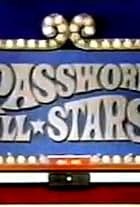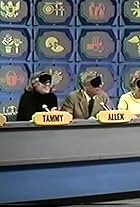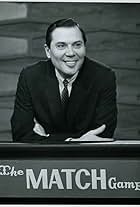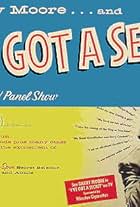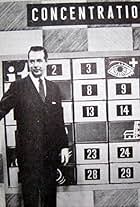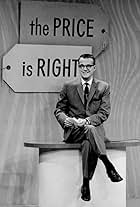Advanced search
- TITLES
- NAMES
- COLLABORATIONS
Search filters
Enter full date
to
or just enter yyyy, or yyyy-mm below
to
to
to
Exclude
Only includes titles with the selected topics
to
In minutes
to
1-50 of 19,321
- Host Gene Rayburn's five-day-a-week syndicated successor to the popular CBS game show, where two contestants could compete to match fill-in-the-blank phrases with answers provided by a panel of six celebrities.
- Contestants compete for prizes and cash, including cars and vacations, in games that test their knowledge of consumer goods pricing.
- Four panelists must determine guests' occupations - and, in the case of famous guests, while blindfolded, their identity - by asking only "yes" or "no" questions.
- A fan club of die-hard James Dean fans meet on the 20th anniversary of his death and reconnect, opening old wounds and facing new ones.
- Teams of celebrities and their families face off to name the top responses to questions posed to 100 people.
- In the 1880s Jason McCord travels the country trying to prove he's no coward. He needs to do this because the military career of this West point graduate came to an end when he was thrown out of the army after being accused of cowardice.
- Five-day-a-week syndicated revival of one of Goodson-Todman's most durable and longest-lived formats: A celebrity panel determines which of three contestants is the actual person associated with a given story.
- After the end of the Civil War, a former Confederate Army private roams the Wild West, and, as a rogue drifter, gets involved in helping out various settlers threatened by various bad guys.
- Two families compete by trying to outguess the opponents about survey results.
- Celebrities & their spouses, playing for sections of the studio audience, try to match answers to questions about their personal lives.
- Revised version of the verenable Goodson-Todman game show, where celebrity-contestant teams try to convey passwords.
- Two celebrity-contestant teams compete to guess words by giving one-word clues in this all-time classic game show.
- A group of celebrities would be given a sentence with a missing word, which they would then have to fill in. The contestants would then give their own answer, and scored points according to how many celebrities gave the same answer.
- After an 11-year absence, a buffalo hunter returns home with lots of money in his saddlebags only to be robbed at gunpoint by a trio of no-good town citizens, prompting an eventual revenge quest.
- Five-day-a-week syndicated update of the longtime CBS game show, wherein celebrity panelists guess occupations of the contestants.
- Hosted by Jim Perry, were contestants are asked questions about how 100 people answered a poll question then played a card game where they tried to guess whether the next card drawn from a deck in a sequence would be higher or lower.
- General knowledge quiz for 16-18-year-olds.
- Two families go head to head to answer everyday questions.
- This is The 1st Edition of the program. Composed of 2 Teams of 3 Members (2 In-Studio team members and 1 Star Team Captain) are writing answers to an question {e.g.: Name a part of a chicken} that'll/this'll read(ing) by the host/star (Gene Rayburn) and one(1) member of the team wrote/writes the answer {e.g.: Leg}. The 1st and 2nd Members of the team has/having the same answer is/are matched and that'll/this'll be worth 25 points (10 points-early in the run from December 31, 1962 to February 8, 1963) and the star team captain matched the same answer and that'll/this'll be worth 50 points (20 points). The 1st Team score 100 points wins the game and collect $100 and played "The Studio Audience Match." In "The Studio Audience Match", That/This has 3 Secret Survey Questions which it This/That all occurs the date this/that held/holds the 3 Questions prior to the broadcast of "The MATCH GamE". Each 1 of the 3 secret survey questions that/this has/having the all-time popular answer will be match by the same 3 members of the winning team called "THE BEST ANSWER." Each matching answer that'll/this'll determine what he or she thinking up that/this answer of their judgment is valued at in the following - 1 Person Matched worth $50, 2 People Match worth $100 and All 3 People Match includes A Star Team Captain worth $150 and the possible total of the 3 questions is worth $450 and that/this can be added to $100 and can be the perfect total of $550. The Game Continues before time's up with the sound of whistle blow and the 2 members of the team has the highest cash amount became today's winners. On the weekday of February 27-March 3, 1967 Before the show is over...There's "The Telephone Match" becomes a feature to the program. The Host reads the question {i.e.: _____ Soup} to the home viewer via telephone call and picks 1 member of the studio audience (by a number from 1 to 100+) will match the answer {i.e.: Vegetable Soup} as well the member wrote the answer and that's a match wins the share of jackpot started at $500. $100 will be added when it's a mismatch {i.e.: Alphabet Soup}.
- The life and career of Elvis Presley are chronicled in home movies, concert footage, and dramatizations. Subjects include early performances, army service, Ed Sullivan Show appearance, marriage, 1968 comeback, health decline and death.
- A group of panelists try to guess a guest's secret.
- Two contestants revealed pieces of a rebus-like puzzle by matching 15 pairs of cash amounts and prizes, then tried to solve it before the other.
- The original version of an American icon, "The Price is Right" rewarded contestants with valuable prizes for their ability to price items.
- A short-lived crime series, featuring the cases of the fictional detective Philip Marlowe. The series was based on the detective novels of Raymond Chandler,, but failed to find an audience.
- Game show which sought to resolve the question, "Are two heads better than one?" A single contestant competed against a team of two (related in some way but not married) to answer general knowledge questions, which allowed them to claim hexagonal boxes on a large five-by-four game board if they answered correctly. Each box had a different letter of the alphabet on it, and each question had a one-word answer beginning with whichever letter was selected by a player. The single contestant had to complete a vertical path on the board to win (a minimum of four red boxes), while the two-person team had to finish a horizontal path on the board (a minimum of five white boxes). Oftentimes, more than the minimum number of boxes were required to win a game. The first team to win a two-out-of-three-game match became the champion and played the "Gold Rush" for a chance to win $5,000 in cash. The same game board was used only with each box having one letter or as much as five initials to a phrase, title, name, etc. The champion, whether it be the single player or one member of the two-person team, had 60 seconds to make a horizontal connection across the board. Each clue answered correctly turned the box in question gold, while incorrect answers or passes turned a box black, making it a block that a contestant had to work around. If the champion failed to make such connection, he/she won $100 per correct answer. Teams continued until winning 10 games or being defeated. The 10-game maximum was eventually extended to 20 games, allowing previously-retired champions to be brought back to the show.











